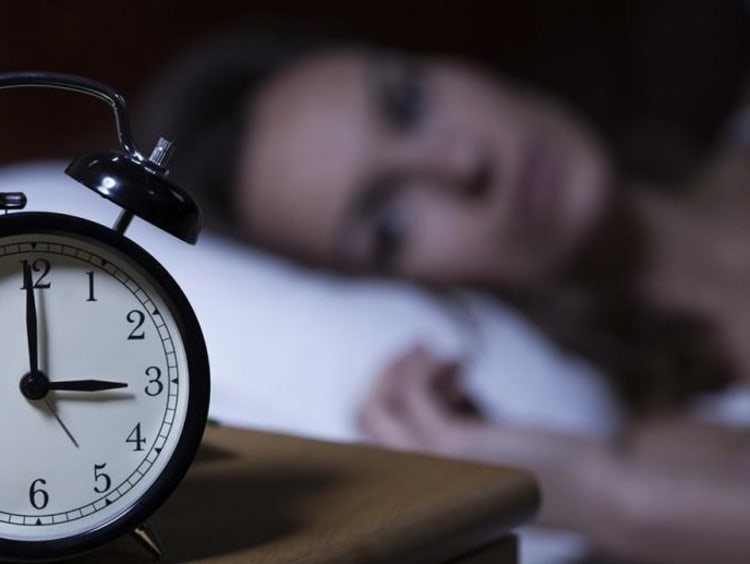The Science Behind a Tired Mind
By Ilse Kremer, MA, MS
Faculty, College of Science, Engineering and Technology

Do you tend to stay awake late into the night, and have trouble getting up in the morning?
Well, a tired mind may not be your fault at all, depending on your age.
As I tell my students in anatomy lab while we study the various glands of the endocrine system, there are hormonal mechanisms going on in your body that are largely beyond your control.
How Sleep Works
Located deep in the brain, there is a tiny pea-sized circle called the pineal gland, which secretes the hormone melatonin. During the time that we are awake, a body system called the homeostatic maintenance system gradually increases our need for sleep. So, the longer we are awake, the sleepier we become.
To prevent us from falling asleep in the middle of the afternoon, the body has figured out how to counteract this system by using the pineal gland to secrete melatonin. Melatonin helps regulate phases of sleepiness and wakefulness in regular 24-hour intervals, which is called the circadian rhythm.
The “boss” that regulates this system is a structure in the brain called the suprachiasmatic nuclei of the anterior hypothalamus. This bunch of nerve cells takes its cues from the input of light/dark through the retina of the eyes so that it can coordinate the body’s need for sleep to outside environmental cues. When it’s light out, we are more alert and awake. When it’s dark out, we get sleepy. Except, of course, when you are an adolescent, because then all bets are off.
Why a Tired Mind?
In 1993, scientists floated a theory that suggested that the circadian rhythm mechanism might be somehow changed in teenagers, causing many of them to be sleepy all morning and want to sleep late into the day. When they investigated this in the lab, they found that sleep phases and melatonin secretion are delayed in adolescents when compared to sixth grade children.
Plenty of other studies have since investigated this and have consistently found that adolescents go to bed later and sleep in later. I have a pre-teen daughter at home, and I am already seeing this change in her: She used to bounce out of bed at 6 am when she was little, and now she can sleep until noon if I let her. Of course, there are some individual variations in this, but the take-home message is that it’s difficult to fight the body’s internal maintenance mechanisms.
If you are a late sleeper, schedule your day around your most wakeful times and pay attention to your body’s cues. The body is an amazing machine if you get your mind out of the way and let it function properly. Have a restful sleep tonight, at whatever time you feel yourself getting sleepy.
And, sleep in if you can. After all, science has your back on this!
Grand Canyon University’s College of Science, Engineering, and Technology allows students to grow and learn in their field. To learn more about GCU’s science programs, visit our website or request more information by using the button at the top of the page.
References:
- Carskadon, M.A., Vieira, C., Acebo, C. (1993). Association between puberty and delayed sleep preference. Sleep, 16:258-262
- Carskadon, M.A., Acebo, C., & Fallone, G. (2002). Morningness/eveningness (M/E) phase angle, sleep restriction, and MSLT: a pilot study in adolescents. Sleep, 25:127-128
The views and opinions expressed in this article are those of the author’s and do not necessarily reflect the official policy or position of Grand Canyon University. Any sources cited were accurate as of the publish date.


